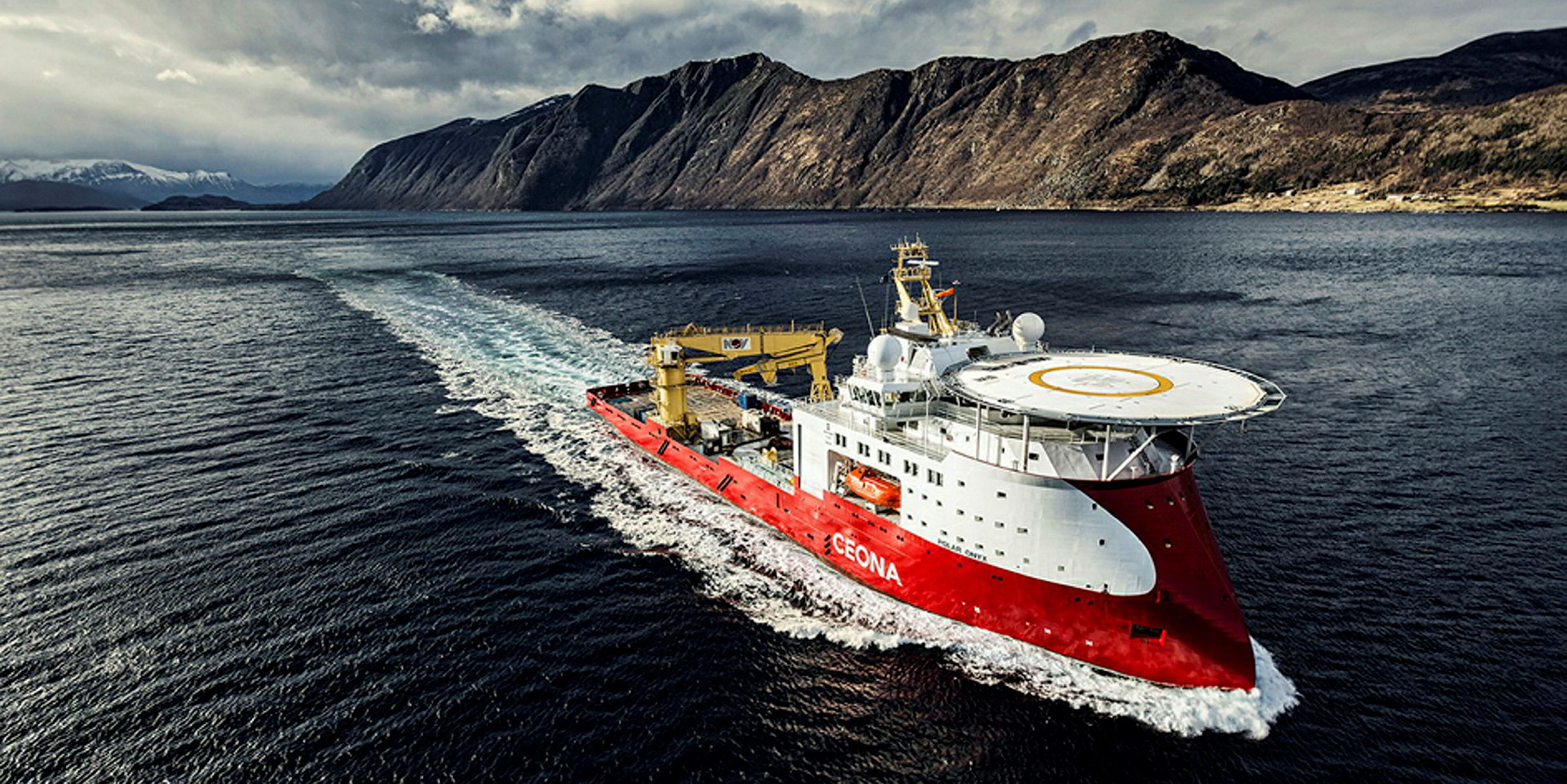Green shoots in offshore markets have been reflected in GC Rieber’s financial results for the fourth quarter of 2018, in which it posted a profit for the first time since the third quarter of 2017.
Net profit reached NOK 269m ($31.2m) for the final three months of 2018, buoyed by a reversed write-down of vessel values, which was revised upwards by NOK 30m following updated broker estimates.
Ebitda for the period was NOK 274m, largely thanks to a NOK 310m non-cash gain realised from Shearwater’s acquisition of Schlumberger’s marine seismic acquisition business WesternGeco in November.
Market rates have started to show “meaningful” improvements, which have been reflected in the results, chief executive Einar Ytredal commented during a conference call with analysts.
That being said, offshore market conditions remain challenging with unsustainable rates, but gradual improvement is expected in this year and into 2020, the Oslo-listed company said.
The results have also been aided by higher vessel utilisation, which was 98% during the fourth quarter, excluding marine seismic vessels.
Subsea improves, seismic still shaky
GC Rieber’s subsea segment, in which it owns and operates three vessels, saw 95% utilisation during the period, compared to 58% in the fourth quarter of 2017.
During the conference call, Ytredal revealed the contract for its construction support vessel (CSV) Polar Queen has been extended by a further 50 days.
The 6,300-dwt ship (built 2011) was fixed for an initial four months to an unnamed European client in November.
Shearwater’s performance has not been as strong as GC Rieber’s during the final quarter.
GC Rieber's share of profit from Shearwater during the fourth quarter was negative NOK 63m, Ytredal said.
Utilisation of Shearwater’s three active vessels was 76% during the period.
“The combination of soft market rates, inter-continental transits, as well as non-recurring transaction costs affected profitability in the period,” Ytredal said during the conference call.
Nevertheless, GC Rieber says Shearwater is well positioned for improved marine seismic market conditions, following its acquisition of WesternGeco.
Shearwater’s active fleet of four seismic vessels is fully booked for the first quarter of 2019, Ytredal said.
The company is in the process of re-activating four further vessels, after having secured additional contract backlog for the summer season, he explained.
Subsequent to the WesternGeco takeover, Shearwater’s fleet comprises 14 fully equipped seismic vessels.
Sentiment not sufficient
Ytredal struck a cautiously optimistic tone during the conference call, but warned that rising sentiment was not enough to support tangible returns in the offshore market.
“The oil price has in 2019 recovered and stabilised around $60 per barrel after Brent crude in September spiked about $80 per barrel for the first time since late 2014, before slumping to around $50 per barrel at year-end,” the chief executive said of the year ahead.
“The overall offshore market sentiment has continued to improve despite this volatility. Still, improved sentiment has yet to materialise into firm projects yielding appropriate returns for vessels’ owners.
“While the subsea market has improved, day rates remain below a sustainable level,” Ytredal said.
Going into 2019, GC Rieber has contract coverage of 79% for its subsea and ice/support segments for 2019.
The company’s total contract backlog is NOK 434m until 2021, Ytredal said. This figure excludes marine seismic activities and extension options.




